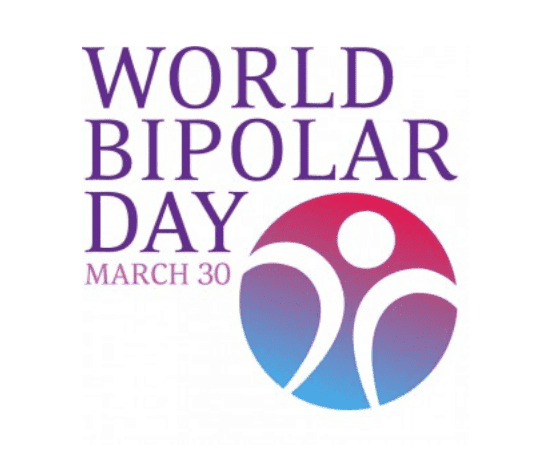How to recognise the symptoms of bipolar disorder?
Bipolar disorder is a mental health condition that can cause dramatic changes in mood and energy levels. These can range from extreme highs (mania) to extreme lows (depression).
Recognising the signs of bipolar disorder can help those suffering receive the support and the treatment they need. We’ve asked the specialist health advisors at Delamere Health Cheshire to share their tips on spotting the symptoms and signs of someone suffering from bipolar.
Photo credit: Polina Zimmerman
Bipolar symptoms can make dealing with day-to-day life challenging. Those suffering may experience an abnormal rise in energy levels, known as mania. The symptoms of mania can include feeling happy or excited when things within your life aren’t going particularly well.
Here are some of the common behaviours associated with mania. These are common signs you can observe, so you can recognise if you or those surrounding need help.
Speech becomes quicker and louder – Another symptom to recognise is when someone becomes more energetic than usual; this is recognised as talking loudly and quickly. This sign becomes more apparent when it’s a deviation from the person’s typical speech and behaviour.
Decreased need for sleep – Not being able to sleep or feeling that you don’t want to sleep is a common sign of mania. During a manic episode, those suffering often experience a decreased need for sleep and still feel more awake and energetic the following morning due to high levels of energy.
Becoming easily distracted – Losing concentration, becoming easily distracted and struggling to focus on a single task are all signs that someone is suffering from mania in bipolar. Keep in mind that this symptom can be spotted in everyday life or within the office environment.
Increased irritability – Individuals experiencing mania often become increasingly irritable or hostile towards others without reasonability. Be cautious when approaching someone with this behaviour, and always seek external support and advice.
Showing grandiosity behaviour – Some people experiencing the mania phase of bipolar disorder often develop delusions of grandeur, for example, making statements like, “Kim Kardashian has asked me to visit her home”.
Grandiosity is an exaggerated sense of one’s importance, knowledge or identity. When individuals display this symptom, they often have fantastical beliefs of being rich, famous and influential.
Photo credit: Andrea Piacquadio
Symptoms of bipolar disorder can vary widely. Some people are more prone to either mania or depression, while others experience an alteration of both. Here’s how to recognise the signs and symptoms of bipolar depression.
Having thoughts of death or suicide – During a depressive period, those suffering from bipolar often develop suicidal thoughts or feelings of wanting to harm themselves. The combination of extreme high and extreme low mood swings makes for a rise in suicidal thoughts.
If you begin feeling suicidal or know someone who is suffering, seek external help, remove any items that could cause harm, listen and be there for them.
Changes to weight and eating pattern – Weight and appetite can fluctuate for people with bipolar depression. With bipolar disorder, you will begin to recognise your appetite changes, making you either lose or gain weight.
Experiencing fatigue and loss of energy – Feeling tired and having a shortage of energy are both signs of someone is suffering from bipolar depression. This isn’t a feeling of drowsiness or sleepiness but a feeling of no motivation and energy.
Losing interest in pleasure – Bipolar depression can take the pleasure or enjoyment out of the things you love. Those suffering will experience a loss of interest or withdrawal from activities you once enjoyed, such as sports, socialising, and hobbies. Another area where this is predominantly common is with sex. Sometimes those suffering will often have a decreased sex drive.
Having feelings of worthlessness or guilt – Bipolar depression is often connected with a negative sense of self-worth. Often people will feel symptoms such as shame, guilt, hopelessness and worthlessness. Such symptoms create distress and can make it challenging to manage day-to-day tasks.
How you can help relieve the symptoms of bipolar disorder
Dealing with a mental illness such as bipolar disorder can be challenging. We’ve shared seven ways you can improve your mood when facing bipolar disorder.
- Create a healthy routine and stick to it
- Schedule daily tasks to give your day structure
- Do the things that make you happy, despite feeling fatigued
- Keep your body and mind active
- Don’t shut away social interactions with others
- Look for new ways to relieve stress. Why not try a new sport or hobby?
- Seek external support and advice. This could be a support group or therapy
To learn more click here: https://delamere.com/
Help keep news FREE for our readers
Supporting your local community newspaper/online news outlet is crucial now more than ever. If you believe in independent journalism, then consider making a valuable contribution by making a one-time or monthly donation. We operate in rural areas where providing unbiased news can be challenging. Read More About Supporting The West Wales Chronicle


























